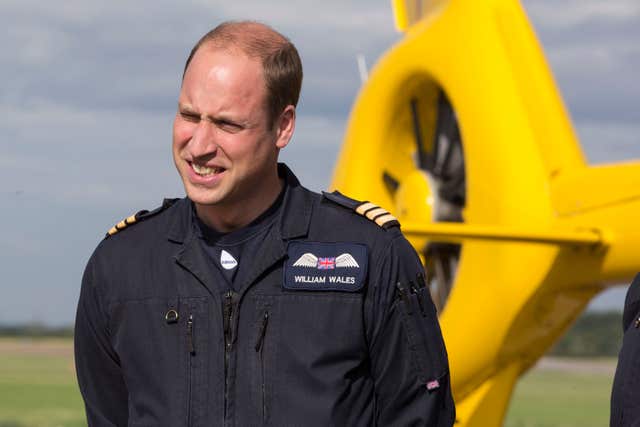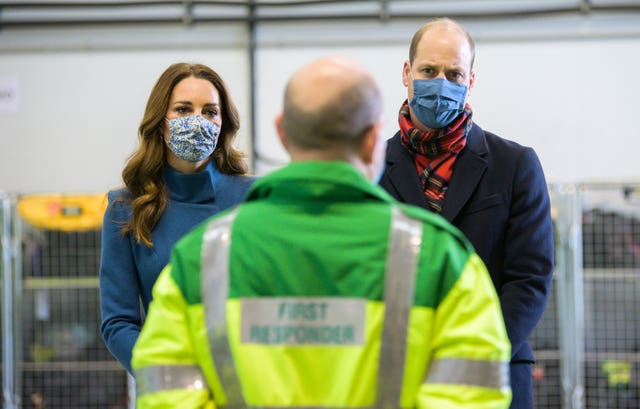William discusses emotionally difficult incidents when an air ambulance pilot
The Royal Foundation and partner organisations have created a Blue Light Together package of mental health support for the emergency services.

The Duke of Cambridge has spoken frankly about how incidents with children “really affected” him when he was an air ambulance pilot.
William’s comments were made in a filmed discussion with ambulance staff which will be screened later at the Royal Foundation’s Emergency Services Mental Health Symposium in London.
In the past the duke has said when he flew helicopters with the East Anglian Air Ambulance, he found incidents involving children problematic.
He reiterated his observations when chatting to emergency care assistant Chloe Taylor, 24, and paramedic Will Parish, 27: “In the air ambulance any job I went to with children, that really affected me, much more than I think if I hadn’t had children actually.

“There were a number of times when I had to take myself away because I was just getting too involved in it and feeling it. And then I’d go to talk to someone else after the event, which was really important, but it continues, it doesn’t really leave you there – you just manage it better.”
The ambulance workers, a couple based with South Central Ambulance Service NHS Foundation Trust, talked about the issues they have faced while on the front line and William had a word of advice for them: “If we weren’t affected by emotions, we’d all be robots.

“That’s what makes our relationships important, it’s crucial, but it’s just managing those feelings so we can have time to feel we can breathe again.”
The symposium will feature a live panel session involving senior emergency services leaders who will talk about their personal experiences of mental health, alongside keynote speeches by Metropolitan Police Commissioner Dame Cressida Dick and the duke.
The event is being hosted in partnership with the National Police Chiefs’ Council, National Fire Chiefs’ Council, Association of Ambulance Chief Executives and United Kingdom Search and Rescue, and will bring together emergency service leaders, frontline workers, policy makers and academics.





